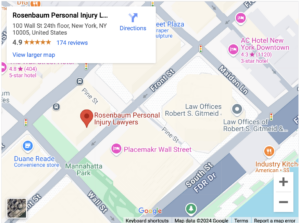Unlike Other Professions, Many Health Care Workers Not Regularly Drug Tested
It makes sense that many workers must submit to regular and random drug testing. Federal law requires truck drivers, for example, to take random drug tests in order to ensure that they are sober and safe while out on the road. Transportation companies that fail to test their drivers can be hit with federal penalties and civil liability. Truck drivers who fail or refuse to take a drug test put their jobs at risk.
Many health care workers have access to drugs prone to abuse and addiction. In a recent opened in The New York Times, an inspector general and a special agent for the Department of Health and Human Services called for federally mandated drug testing at hospitals. They pointed to a case where a medical technician regularly stole the painkiller fentanyl. He injected himself with a prefilled syringe intended for patients and replaced the fluid with saline. Horribly, the technician also suffered from Hepatitis C, a contagious liver disease transmitted through blood, and thereby infected 45 patients with the potentially fatal virus.
Eventually the man was caught and sentenced to 39 years in prison. However, the technician was able to elude notice for years by moving from state to state and hiding his job history. Because regulations vary between states and hospitals, his employers were not aware of the danger he posed to patients.
It is not just criminal actions that endanger patients because of substance abuse, however. Well-intentioned health care employees throughout hospitals could endanger patients because of an addiction. If driving a truck under the influence is deadly – and it is – how dangerous is performing healthcare duties when under the influence of drugs or alcohol?
Medical malpractice
The writers of the New York Times opinion piece, Daniel R. Levinson and Erika T. Broadhurst, recommended that federal regulations mandate drug testing on employees in medical centers. In addition, they recommended making it a law for hospitals and medical centers to report suspected drug theft to law enforcement.
As of now, however, there are no such regulations and patients continue to experience negligent medical care by doctors or medical staff under the influence. Substance abuse causes various types of medical malpractice, from operating room errors to hospital infections, from birth injuries to pharmacological errors. According to the Harvard Medical School, one in ten doctors will suffer some type of substance abuse issue during their careers.
Patients who believe they may have experienced negligent care at a hospital or medical facility because of substance abuse by a health care provider should contact an experienced personal injury attorney familiar with medical malpractice claims to discuss their legal options.
Contact the New York City Personal Injury Law Firm of Rosenbaum Personal Injury Lawyers for Help Today
If you’ve been injured in an accident in Manhattan, NY, and need legal help, contact our personal injury lawyers at Rosenbaum Personal Injury Lawyers to schedule a free consultation. We also serve in Brooklyn and the Bronx.
Rosenbaum Personal Injury Lawyers – New York City Office
100 Wall St, 24th Floor
New York, NY 10005
(212) 514-5007
Our firm is located near you. We have an office in NYC
Find us with our GeoCoordinates: 40.7051415,-74.0067386
Rosenbaum Personal Injury Lawyers – Bronx Office
1578 Williamsbridge Rd suite 3b
Bronx, NY 10461
(929) 447-2347
Our firm is located near you. We have an office in the Bronx
Find us with our GeoCoordinates: 40.8468944,-73.8483118
Rosenbaum Personal Injury Lawyers – Brooklyn Office
32 Court St #704
Brooklyn, NY 11201
(718) 550-3601
Our firm is located near you. We have an office in Brooklyn
Find us with our GeoCoordinates: 40.692948,-73.991038



